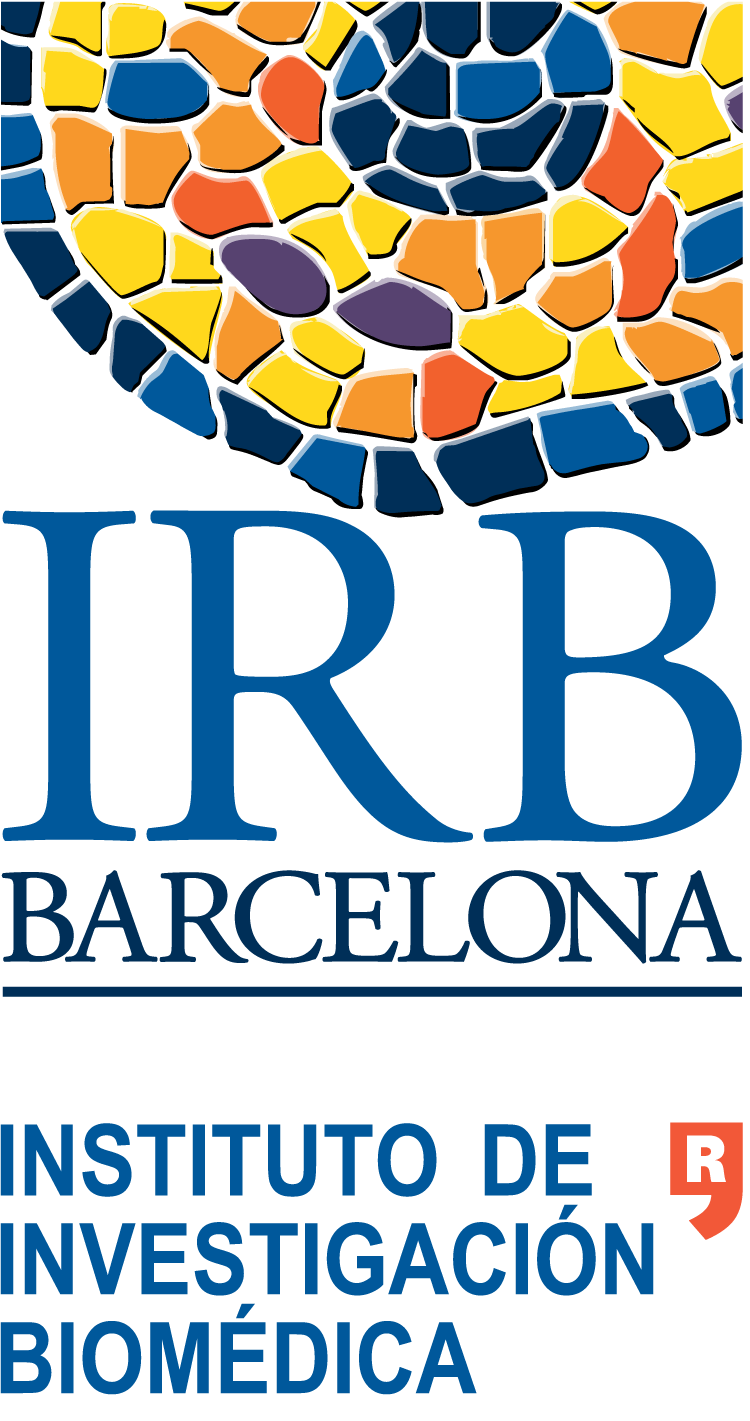
IRB Barcelona
If you are the contact person for this centre and you wish to make any changes, please contact us.
ICREA researcher at IRB Barcelona
Molecular Modelling and Bioinformatics group lead at IRB Barcelona
Head of the Biomedical Cancer Genomics group at IRB Barcelona, ICREA research professor at IRB Barcelona and associate professor at Pompeu Fabra University
Principal Investigator at IRB Barcelona
ICREA research professor and head of the Comparative Genomics group at the Institute for Research in Biomedicine (IRB Barcelona) and the Barcelona Supercomputing Center (BSC-CNS).
Principal Investigator at IRB Barcelona
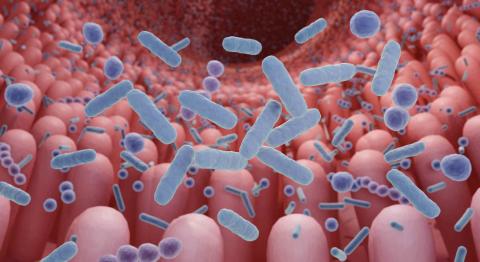
There is no solid scientific evidence that alterations in the gut microbiota cause autism, according to an opinion piece published in the scientific journal Neuron. The research supporting this hypothesis—observational studies and clinical trials in humans, as well as mouse models—has both conceptual and methodological shortcomings, the authors write.
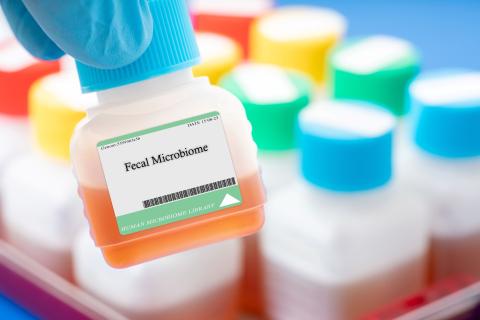
An international study has warned of the potential risks of widespread use of faecal microbiota transplantation without taking into account the region of the intestine where the transferred microbes arrive. The experiment, conducted on mice and human tissue samples, showed that the microbes from the transplant—mostly anaerobic microbes from the colon—colonised the small intestine, persisted there for months and modified that new environment, causing changes in the host's metabolism. According to the authors, whose study is published in the journal Cell, this may have long-lasting and unforeseen consequences, as well as imbalances in the intestinal ecosystem of patients.
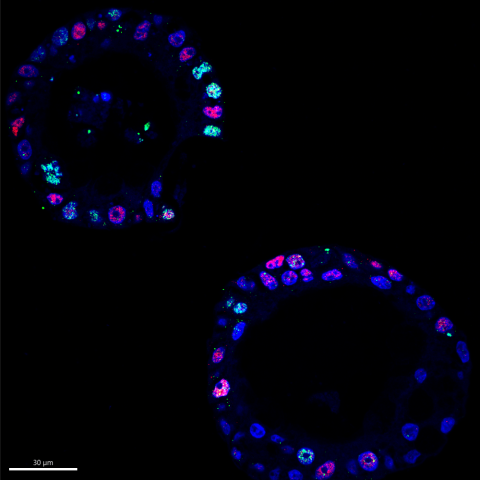
Extrachromosomal DNA circles are structures that appear floating in the nucleus of cells in some tumours and are associated with a poor prognosis. Now, an international team has studied the mechanism by which they could contribute to the aggressiveness of pancreatic cancer. The circles may contain an oncogene called Myc that promotes growth. Furthermore, their quantity increases or decreases to adapt to the environment. Although they were only observed in 15% of the cases studied, the discovery could open up new possibilities for treatment, according to the authors. The results are published in the journal Nature.

A team from the University of Iowa (USA) has found a relationship between specific species of microbiota bacteria and the severity of multiple sclerosis. Specifically, a lower ratio between the quantities of Bifidobacterium and Akkermansia was related to the disease and to a worse course of the disease, both in mice and in two cohorts of patients and people without the disease. According to the authors, who publish the results in the journal PNAS, the finding could be used to improve the diagnosis and treatment of multiple sclerosis.

A synthetic microbiome therapy, tested on mice, protects against the severe symptoms of a difficult-to-treat and potentially fatal intestinal infection in humans: Clostridioides difficile. Although inspired by the idea of human faecal transplants, the new approach does not require faecal matter. Instead, it uses fewer, but more precise, bacterial strains. The study is published in the journal Cell Host & Microbe.
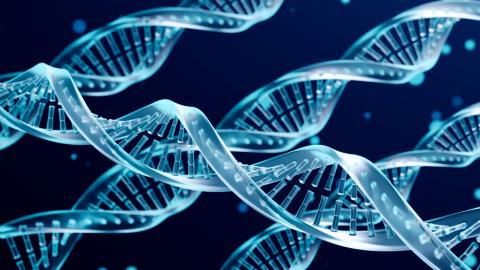
‘Bacterial signatures’ from genital areas could serve as a forensic tool to identify perpetrators of sexual assault, even if there is no trace of sperm, according to a study published in the journal iScience, by the Cell group. After sequencing the DNA of bacteria from genital samples from 12 stable couples, the authors show that a transfer of bacterial species occurs during intercourse, allowing the identification of each person’s own genital microbiome or ‘sexome’.

Most cases of autism have no known cause. Now, a study led at IRB Barcelona has discovered a mechanism that could explain a good part of these situations. The loss of a few amino acids in a crucial protein would affect the activity of hundreds of genes and the development of neurons. To explain the study, which is published in the journal Nature and which could open the door to future treatments, the Science Media Centre Spain organized an informative session with Raúl Méndez and Xavier Salvatella, the two scientists who have led the research.
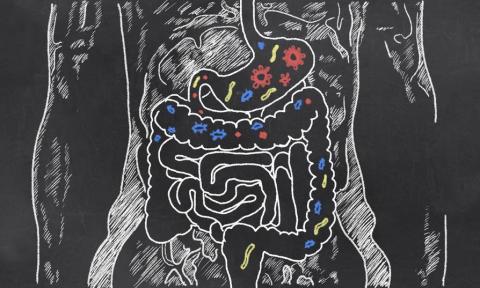
Many diseases related to bacteria, such as inflammatory bowel disease or colorectal cancer, are associated with an overgrowth of gut bacteria considered 'bad'. However, a study published in the journal Cell suggests that changes in microbial load, rather than the disease itself, could be the driving factor behind the presence of these harmful species associated with pathologies.
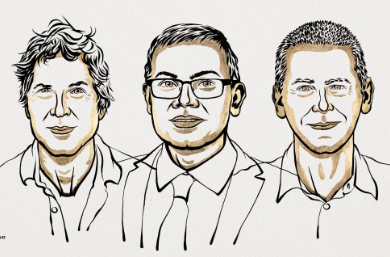
The Royal Swedish Academy of Sciences has awarded the Nobel Prize in Chemistry 2024 on the one hand to David Baker for computational protein design, which makes it possible to construct proteins with functions not present in nature. On the other hand, jointly to Demis Hassabis and John M. Jumper of Google DeepMind, for the development of AlphaFold2, which allows the structure of the 200 million known proteins to be predicted at high speed.
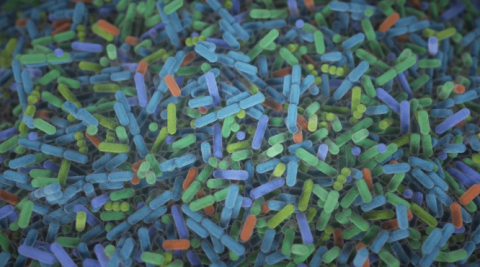
Research has identified 31 biomarkers in the gut microbiota of children that are associated with autism spectrum disorder (ASD) and could have diagnostic value. The gut microbiota includes bacteria, viruses, fungi and archaea. The team replicated the results, published in Nature Microbiology, in three cohorts and analysed faecal samples from more than 1,600 children and children in total, with and without ASD, in China.